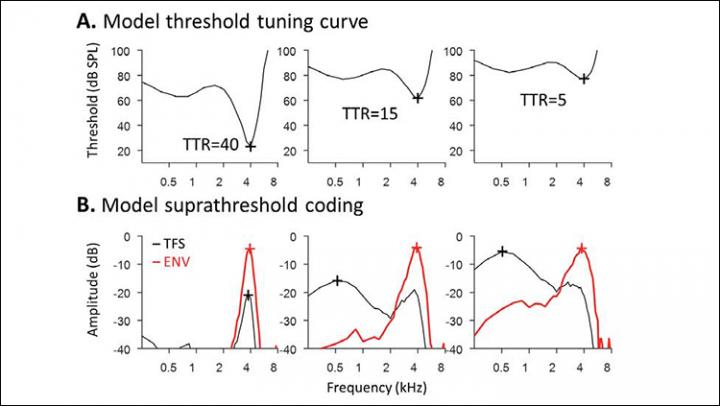Chinchilla Hearing Study Shows How the Brain Encodes Sounds

Complete the form below to unlock access to ALL audio articles.
The most common causes of hearing loss -- age and excessive noise -- have different effects on sound processing in the brain, reports a new study in JNeurosci. This finding suggests each type of hearing loss should have its own unique treatment.

Predicted relationship between cochlear frequency tuning and auditory nerve encoding of sound. Credit: Henry et al., JNeurosci 2019
Michael Heinz, Kenneth Henry, and colleagues used a chinchilla model of age-related hearing loss to observe how the auditory nerve encodes sounds. Comparing their results to data from a noise-induced hearing loss chinchilla model, the researchers found that the same level of sound sensitivity loss caused more severe processing changes in the auditory nerve of chinchillas with noise-induced hearing loss. Additionally, mild noise-induced hearing loss caused the same amount of processing impairment as moderate to severe age-related hearing loss. These findings indicate a need for hearing-safety awareness, as well as more refined treatments for each type of hearing loss.
Reference: Henry, K. S., Sayles, M., Hickox, A. E., & Heinz, M. G. (2019). Divergent auditory-nerve encoding deficits between two common etiologies of sensorineural hearing loss. The Journal of Neuroscience, 0038–19. https://doi.org/10.1523/JNEUROSCI.0038-19.2019
This article has been republished from the following materials. Note: material may have been edited for length and content. For further information, please contact the cited source.

